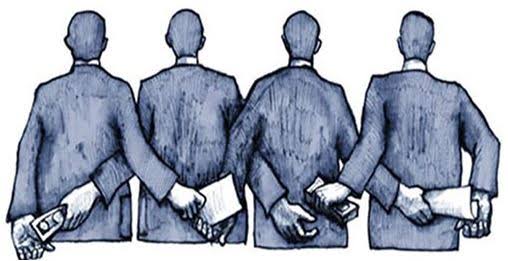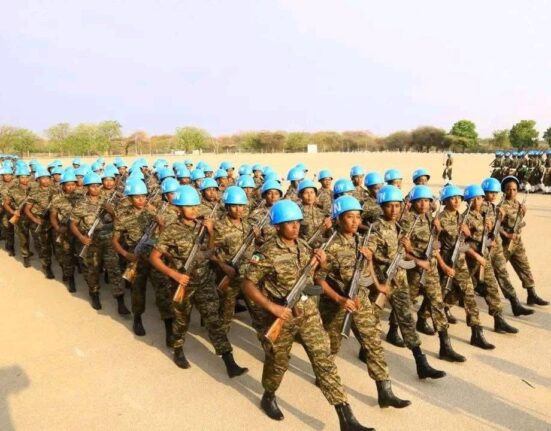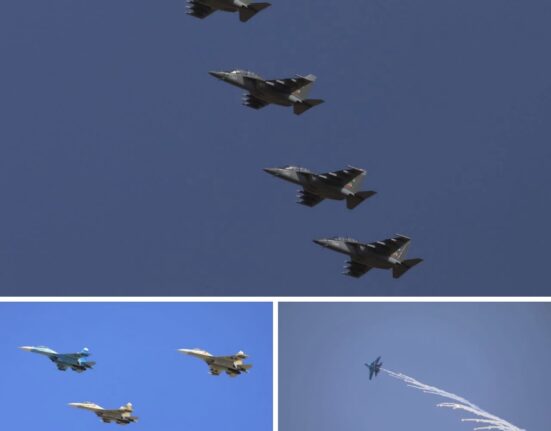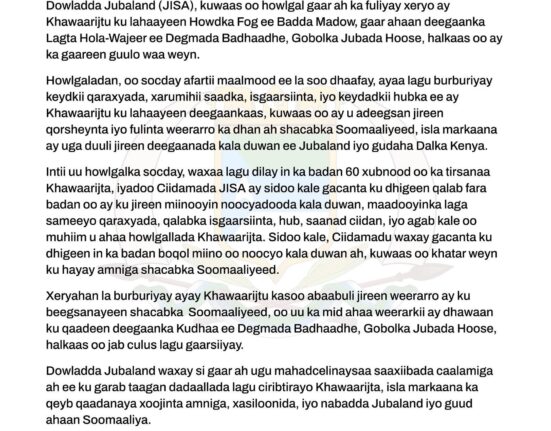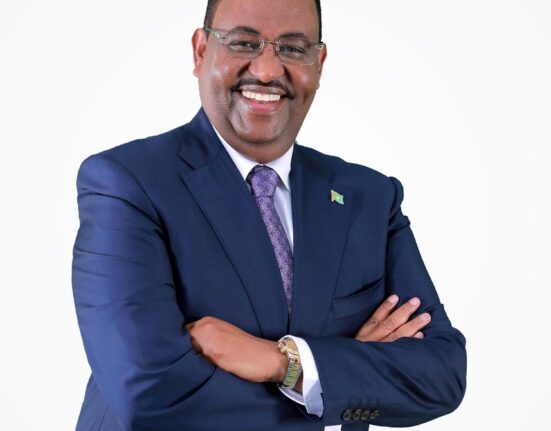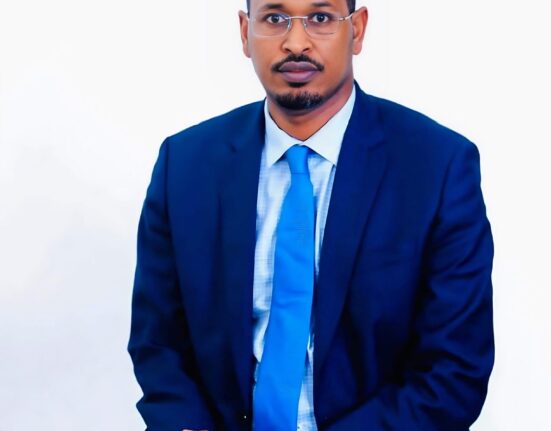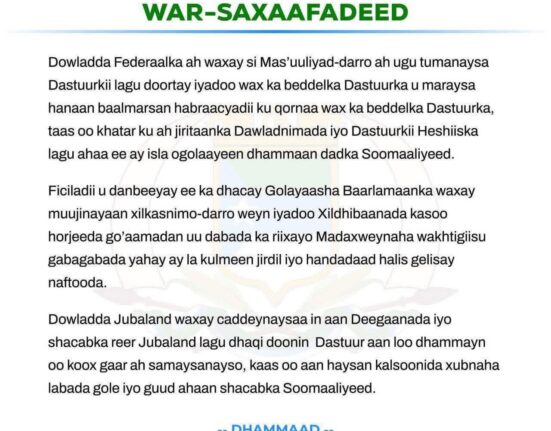By. Abdirezak Sahane Elmi
Former Government Official and Writer of Geopolitical Issues
In the long history of Ethiopia, elites have always played a decisive role in shaping the destiny of the nation. From the struggles of independence to the modernization attempts of emperors, from the revolutionary upheavals of the Derg era to the federal experiment of recent decades, elites have stood at the center of Ethiopia’s victories and tragedies alike. They are the thinkers, leaders, and professionals who carry the responsibility to safeguard the country’s sovereignty, defend the collective interest, and guide the people toward prosperity.
Yet, in today’s Ethiopia, something profoundly troubling is happening. A large portion of Ethiopia’s elites, both in opposition circles and inside the ruling party, as well as among the professional and intellectual class, have fallen into a dangerous pattern of preferring personal gain, self-preservation, or foreign alliances over loyalty to their country and its people. In moments when Ethiopia needs unity and courage, many elites choose division and hesitation. In times when bold leadership is required, they choose silence or betrayal.
The result is a national crisis of leadership and trust, where elites, instead of guiding society, are weakening it from within. Having carefully observed this phenomenon, I see Ethiopia’s elites falling broadly into three categories: opposition elites, ruling party elites, and intellectual/professional elites. Each of these groups bears a different kind of failure, but all, in their own way, are undermining Ethiopia’s sovereignty and the struggle for national prosperity.
1. The Opposition Elites – Blind Alliances Against Ethiopia
Perhaps the most vocal group today are the elites in the opposition, particularly those living in the diaspora. Many of them have turned opposition politics into a career, dedicating themselves not to constructive critique or alternative solutions, but to a single obsession: weakening Prime Minister Abiy Ahmed and the Prosperity Party (PP) at any cost.
Day and night, they work to tarnish the reputation of the leadership, spread propaganda, and align themselves with any force, foreign or domestic, that promises to damage Ethiopia’s current government. Some of these elites do this blindly, without fully understanding the true agendas of the groups and alliances they cooperate with. Others act deliberately, making common cause with Ethiopia’s enemies as long as it advances their personal or factional ambitions.
This behavior is profoundly dangerous. Opposition elites who claim to fight for democracy and justice cannot at the same time compromise the very sovereignty of the nation. Aligning with anti-Ethiopian alliances, simply because they oppose the current leadership, is not politics, it is betrayal.
To those who act unknowingly, I say: open your eyes. History will judge you not by your intentions, but by the consequences of your actions. To those who act deliberately, Ethiopia will remember you not as reformers, but as collaborators in the weakening of the nation.
True opposition politics means offering better ideas, mobilizing the public around constructive visions, and holding leaders accountable without surrendering the sovereignty of the country. Unfortunately, far too many of Ethiopia’s opposition elites today are failing even this basic test.
2. A Few Party Elites – Addressing Loyalty and Cohesion Challenges
If external opposition can at times challenge stability, it is internal weaknesses within the ruling party that pose the most serious risks. Some members of the Prosperity Party have been entrusted with responsibility, authority, and power. They pledged to serve their country, their people, and their party. Yet, there are indications that a few may not be fully honoring this commitment.
Within this small group, two tendencies can be observed:
a) The Ambivalent Members
Certain individuals within the party appear to maintain ambiguous relationships with opposition groups. They occasionally share information, hint at alternative strategies, or position themselves for a political future beyond the Prosperity Party. Publicly, they may express loyalty and issue statements of support; privately, however, their actions do not always align with the party’s mission.
Although such members are few, their potential impact is significant. Operating from within, they can obstruct political work, create uncertainty, and slow the momentum of reform. Their dual positioning, presenting themselves as loyal while quietly serving other interests, undermines trust and weakens the very system they were entrusted to strengthen.
b) The Fearful and Self-Centered Members
Another portion of ruling party elites are not betrayers, but they are deeply weak. They are paralyzed by fear, obsessed with personal survival, and unable to stand courageously in defense of their nation.
These individuals often listen to betrayers and outsiders, always calculating what might happen to their careers, and rarely thinking about what must be done for Ethiopia. They confuse loyalty to the leader with loyalty to the nation, forgetting that their ultimate duty is to Ethiopia’s sovereignty, not their own comfort.
They hesitate to speak out against the opposition, prefer silence when courage is required, and often act inconsistently. In truth, they are not enemies of the party, but they are also not defenders of it. They stand in between, fearful, indecisive, and self-centered.
This group can be helped, but only if the Prosperity Party recognizes their weakness and invests in training, fact-sharing, and building their confidence. They must be reminded that service to Ethiopia requires courage, consistency, and sacrifice.
I know that the vast majority of the Party’s members and leadership are dedicated, honest, and hardworking. However, my critique is directed at the few who have fallen short, with the aim of promoting improvement and ensuring the Party’s short-term prosperity goals are achieved
A Call to Reform
The Prosperity Party is vast, and reforming all its members is no small task. But if the leadership is serious about safeguarding Ethiopia’s sovereignty, it must conduct honest investigations into its own ranks. Betrayers must be exposed. Fearful members must be strengthened. Loyalty must be measured not by words but by deeds.
As someone who openly supports the leadership of Prime Minister Abiy Ahmed and the Party, I wish to make it clear that my words are not intended as an attack to somebody but as a contribution to strengthening the organization. Constructive criticism should never be mistaken for betrayal; it is, in fact, an expression of patriotism. I speak out not from personal interest, but from a genuine belief in a prosperous Ethiopia. Such prosperity can only be realized if the ruling party addresses its internal weaknesses with honesty and remains committed to fulfilling the comprehensive developmental policies and political strategies guided by the Medemer Philosophy.
3. The Intellectual and Professional Elites – The Silence of Responsibility
Perhaps the most disappointing group of all are the intellectual and professional elites, scholars, experts, and technocrats. These individuals have received the best of Ethiopia’s education, some even studying abroad. They are respected in their communities, trusted in their professions, and positioned to influence society.
Yet, when Ethiopia needs their voice, they are silent. When the government achieves historic milestones—such as completing the Grand Ethiopian Renaissance Dam (GERD), building economic corridors, or launching mega-projects, they hesitate to acknowledge or celebrate these achievements. They fear taking sides, fear being judged, fear losing their personal privileges. Instead of mentoring leaders, guiding society, or acting as bridges between government and people, they retreat into private life. They focus on their families, careers, and personal interests, abandoning the wider responsibilities of citizenship.
This silence is not neutrality, it is failure. Intellectual elites were meant to be the moral compass of society, the educators of the public, the guardians of accountability, and the supporters of national development. By refusing to engage, they have become complicit in the stagnation of democracy, the weakness of governance, and the erosion of accountability.
They must wake up. They must rise to the challenge of defending Ethiopia’s sovereignty, guiding leaders when they falter, and encouraging them when they are right. They must speak with courage, write with honesty, and act with patriotism. Silence is no longer an option when the survival of the nation is at stake.
Conclusion: Elites Must Choose Nation Over Self
Ethiopia stands at a crossroads. On one side lies the possibility of prosperity, unity, and progress under a leadership that is striving, despite challenges, to bring transformation. On the other side lies betrayal, division, and the erosion of sovereignty.
Elites, whether opposition figures, ruling party members, or intellectuals, cannot remain neutral in this struggle. They must decide: will they defend Ethiopia, or will they defend only themselves?
Opposition elites must stop aligning with anti-Ethiopian forces. Ruling party elites must purge themselves of betrayal and fear. Intellectual elites must find the courage to guide society. Without this awakening, Ethiopia risks being weakened not by foreign enemies, but by the very people entrusted with its future.
I say this openly, without fear, because I believe in Ethiopia’s survival and prosperity. I openly support Prime Minister Abiy Ahmed and his government, not because they are perfect, but because they represent the path toward a sovereign and prosperous Ethiopia. My words are not attacks but advice, not condemnation but a call to responsibility.
Ethiopia deserves elites who put the nation above themselves. Anything less is betrayal.
By. Abdirezak Sahane Elmi
Former Government Official and Writer of Geopolitical Issues


